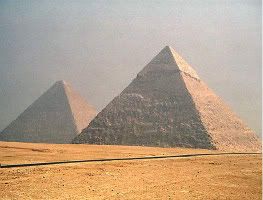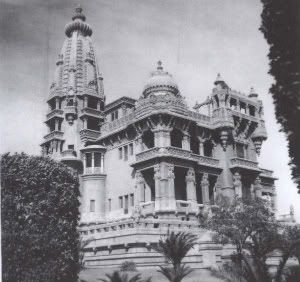By Noha Radwan
Between January 25 and February 11, millions of Egyptians in Cairo, as well as in Alexandria and Suez, took to the streets to protest the 30-year regime of President Mubarak and demand its end. Protesters endured a brutal police assault, a ferocious state-media campaign to discredit them, and violent aggression by state-hired thugs. Yet every day of the 18 days that altered the course of Egypt's future, the number of protesters increased, their voices became stronger, and their power became more palpable.
Much will be written about the conditions and forces that came together to mobilize these sweeping protests and give them momentum. But one striking, human feature of this revolution was how poetry and music permeated the crowds and gave voice to their rage, love for their country, and hope for the future.
My account begins in San Francisco, where, the day after the protests erupted, I attended a support rally before I was to leave for Cairo the next day. The rally attracted several hundred Americans and Egyptian expatriates. After a few chants in both Arabic and English, an Egyptian student took the microphone and sang: "Masr ya Amma ya Bahiyya, ya ammu tarha wa gallabiyya ("Egypt, O Mother, Bahiyya, in your scarf and jalabiya."). As she went on singing the sweet but powerful lyrics written by the poet Ahmad Fuad Nigm more than 50 years ago, which were put to music by the late composer Imam Issa, she was joined by an impromptu chorus of more than 50 singers. The lyrics, which go on to address Egypt as a youthful matriarch whose smile summons daybreak after long, dark nights, enchanted the singers and listeners alike and infused us with hope for a bright future for the country.
The singer's choice was perfect and yet surprising, especially to those familiar with the history of the Nigm-Issa duo, who collaborated during the post-1967 Egyptian protests that berated the regime for losing the war with Israel. Both poet and musician were adamantly repressed and persecuted for their protest songs. Nigm's verse, written in Egyptian vernacular, continued to lampoon Egypt's presidents one after the other for their disregard of the needs and demands of the Egyptian masses. Consequently, both his verse and his person were banned from state-owned media, and both he and Issa were thrown into prison repeatedly. Their songs survived through primitively made recordings circulated among Egyptian leftist activists in the 70s and 80s.
The San Francisco singer was not a leftist (I discovered that by talking to her) and was too young to have been part of Nigm and Issa's original audience. But there she was, extolling Egypt through Nigm's lyrics and electrifying the audience.
In Tahrir Square, I found the same phenomenon. Poems from the 50s, 60s, and 70s found new life in the mouths of Egyptian youth who were too young to have heard them performed when they were written. One, called "Sura," or "Photograph," written by one of Egypt's most famous revolutionary poets, Salah Jahin, to celebrate the end of the 1956 Suez crisis, calls upon the masses to move closer into a photograph to commemorate the event. This was quite fitting, since the song ends with the line: "And he who escapes from the midan will not appear in the photograph." In Arabic, midan means both a battlefield and a square, like Tahrir.
The 2011 protesters wrote their own verse, too. Most remarkable were the rhyming chants: revolutionary communiqués crystallized into memorable single lines. But there were also longer compositions that were recited or put to music and sung over the square's makeshift radio. Scholars and literary critics may debate whether this verse meets the standards of poetry—it may not have the requisite subtlety and nuance. But if you apply Horace's ancient statement that poems "must be affecting, and must lead the heart of the hearer as they will," the verse of Tahrir Square certainly qualifies.
From the start, the protesters coined pithy rhyming chants that were strongly emotive and inspiring. "Ya Mohammad, go tell Boulis—Egypt will catch up to Tunis!" captures the Tunisian spirit of victory and the Egyptian people's anger at the state's recent, and still inexplicable, attacks on a Coptic church in Alexandria. The chant, based on the rhyme of Boulis, a common Coptic name (the Arabic version of Paul), with Tunis, Arabic for Tunisia, uses those two names as metonyms: It is a call for the Christians and Muslims in Egypt to unite so that Egypt can follow Tunisia in its quest for freedom and democracy.
Another chant, "Masr ya umm, wiladik ahum" ("Egypt, O Mother, here are your sons"), was also very powerful. In using the image of Egypt as a matriarch and the protesters as her sons, it countered the regime's patriarchal tone, which painted Mubarak as Egypt's sole guardian and discredited the protests as rash and unpatriotic. This chant became the beginning of a longer poem that went on to describe how the "sons" are the ones who truly care and prove their loyalty with their own blood.
The bloodshed resulting from the assaults on the protesters inspired yet another powerful chant: "Ask the silent, why the silence? After blood, how can it get worse?"
The chants spread like wildfire, yelled out by one, repeated by thousands, and echoing throughout the square in a matter of minutes.
On the makeshift radio, many of the protesters recited poems that they wrote especially for the occasion. The poems were in literary Arabic and colloquial Egyptian Arabic. Some were in the classical Arabic 'amudi form, while others were in strophic or modern free-verse structures. The quality was as variable as the forms and the content of the poems, a versified testimony to the multiplicity of voices and democratic spirit of the Tahrir protests.
One satirical poem recounted the many forms of abuse the Egyptian police inflicted on protesters. The refrain was "Tati, tati, inta fi watan democrati" ("Hold your head low, for you are in a democratic nation"). Another poem, which had a more solemn and slightly religious tone, punned on one of the 99 qualities that Muslims ascribe to Allah—Al-Baqi (He Who Lasts Eternally):
If injustice has enjoyed long nights,
Justice will mark the coming days.
No matter how brutal injustice gets,
It will someday be abolished
For, how can it last
When Al-Baqi is Allah?
This one was put to music and sung by the poet to an audience, who joined in singing the refrain: "How can it last, when Al-Baqi is Allah?"
These examples of how verse and music mobilized the masses and expressed their rage and aspirations are only a few of many that still need to be properly documented. For 18 long days and even longer cold nights, music and poetry occupied center stage, entertaining the protesters, fueling their spirits, and providing new material for those who wish to study the poetics of revolutions.
But what many will remember with perhaps the most emotion is the simple strumming on a Spanish guitar and the even simpler accompanying lyrics: "We are all united. We have one demand: Irhal (leave). Irhal." Simple words indeed, but they will forever mark one of the most important moments of Egyptian and Arab history.
Noha Radwan is an assistant professor of Arabic and comparative literature at the University of California at Davis.







